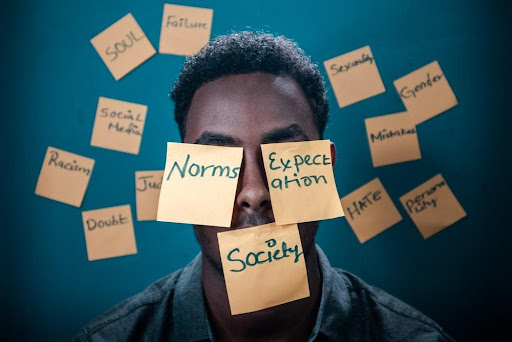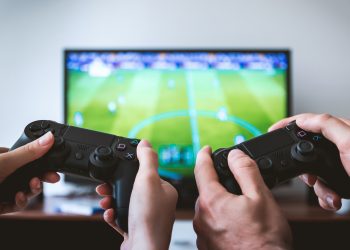During the College years, the search for oneself and one’s destiny, cognition, and formation of personality take place. Dissonance may overtake: “Why should I pretend to be someone else? Why should I be the way others want me to be? After all, I’m not like that!”. Then you want to throw off your stereotypical behavior and show the world what you are. Or vice versa: to get lost in the crowd and merge with others.
The fact is that we all wear social poppies – images that help us adapt to a certain social unit (educational or working group, family, etc.). Sometimes this happens unconsciously, and sometimes intentionally, to earn the favor of others and be accepted by them. First, as a student, I could not believe that I could be a successful student, so I decided to pay someone to write my paper for me. Being different is characteristic of absolutely all mentally healthy people.
Where did the masks even come from?
The formation of masks is associated with the development of society when people began to play a variety of social roles. In ancient times, when people were hunting and searching for the home alone, it was not necessary to adapt their habitual behavior to others. No one “bargained” with anyone, the instinct of self-preservation worked: catch the prey and eat. If they take it away, fight to the last. Then it did not occur to anyone (brain functions were insufficiently developed) that it was possible to negotiate, apply special tactics of behavior and as a result resolve the issue through compromise.
Then a primitive society began to form, people began to unite in tribes, because it is much more difficult to survive alone. Joint hunting brought more fruits, and housing construction was easier. At this stage, the social masks began to develop. We have to adapt our behavior to the members of the group so that everyone is comfortable with each other.
Later, with the development of crafts and trade, people began to perform new social roles. It was necessary to behave in such a way as to “please” the buyer, interest him and sell the goods. And the more new roles had to be performed, the more the approach to communication changed.
If you look closely, you can see that today everyone is playing several roles at the same time. On the example of students, this may be a student, a son/daughter, a close friend, a leader in a little-known company, a subordinate at work, etc. In each of these situations, a behavior change is required.
Stages of formation
The existence of social masks is socio-psychological. Every person in society is a person. The latter is formed from childhood and only in the social environment and under its influence. There are changes in the psychological component of a person.
There are 4 main stages of the formation of socially adapted behavior.
Earlier childhood. The joy of being, the free expression of feelings and emotions
This period lasts from the moment of birth to 3 years. At this age, the child gets acquainted with the world, the brain increases productivity to process a huge flow of information. A little person does not yet know that there are different ways to communicate with mom and dad, except to ask for something or cry if he is hungry or has a stomach ache.
Suffering from not being yourself
This stage is called the crisis of 3 years. At this age, the child learns to manipulate his parents to get what he wants: he is capricious, demands more. Prohibitions serve as a lesson that not everything you want is available. In addition, punishments indicate that certain behavior is unacceptable to other people (for example, shouting at parents, aggressive demands for something, disrespect, etc.).
Period of indignation, rebellion
This is the teenage period. A person is not yet aware of his role in society, the requirements of the latter for a certain model of behavior. I want to be myself in any situation, express my position in different ways. If this is realized, the teenager is indignant that society reacts negatively to his behavior, does not accept it.
The desire to avoid difficulties and suffering, the formation of a new personality
At this stage, a person accepts the need for the existence of social masks, forms special patterns of behavior in a particular situation. This makes life easier, provides faster adaptation in new social groups.
The use of social masks
Talking about their benefits is a bit strange since it is an integral component of personality formation. And yet, in adolescence, it may seem that behaving as you wish is the only right decision.
But this is not the case.
What can happen to a student if he does not wear social masks:
Conflicts with the study group. Everyone came to the class alone, acceptable rules of behavior were built from scratch. First of all, students show respect for each other, try to accept someone else’s point of view, do not impose their rightness. They support each other in different situations: they will remind you what was set in the discipline, they will share a summary if someone missed a lesson. Mutual assistance contributes to the rapprochement of team members and the building of friendly relations. If you neglect such simple rules of behavior, you can only get the dislike of classmates.
A bad reputation in the eyes of the teacher. This is fraught with problems when passing tests and exams. When you take on the role of a student, you must follow a certain form of behavior. The student must study, complete assignments, and work in the classroom. And you also need to treat the teacher with respect, not to argue with his claims about an unfair approach to learning (if this is the case). The student must show restraint in expressing his emotions, be diplomatic in communication, and treat criticism objectively.
Conflicts with the teacher should be excluded, otherwise, they will negatively affect grades during the session. Diligence in studies and a social mask will help to maintain mutual respect.
Be flexible and smart, think everything through in advance. If one of the teachers angers you or pisses you off, be calm and don’t argue. Vent your negativity differently, and then think about how to turn the situation in your favor. Constructively explain what exactly you disagree with. Ask how the grade can be corrected and why the average grade is so important.
What can happen to other people if they stop behaving as their social role requires:
Parenting. Children require attention from their parents, especially from their mothers. This applies to communication, games, emotional support, and reaction to any incidents. Sometimes you have to wear a mask: be condescending and attentive when in fact you are angry about something or just tired. Showing indifference to a child is fraught with the fact that he will develop psychological problems. To get to know this topic better, you can watch the movie “Something’s Wrong with Kevin” starring Tilda Swinton. The story of how a cold-blooded and insensitive woman grew up with a psychopathic son (the picture was shot taking into account the real psychological aspects of a person).
Being different is not only normal but also necessary for the successful fulfillment of their social roles. Being a student, parent, or subordinate means showing different approaches in communication. In one case, you need to be more empathic, in the other — restrained and cold-blooded. In difficult and stressful periods of life, understanding what others expect from you can blur.
















